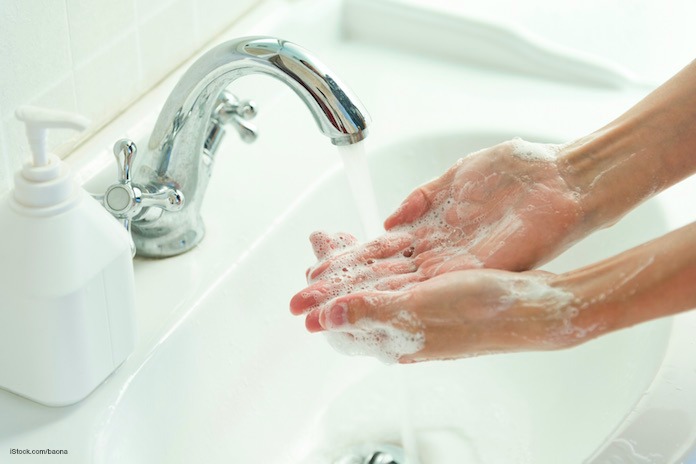On every story we have written over the past five years about food poisoning outbreaks, we follow the FDA’s advice: after handling potentially contaminated products, wash your hands thoroughly with soap and water. That’s the best way to remove pathogenic bacteria and viruses from your hands and prevent the spread of illness.

Now the FDA is telling soap manufacturers that they can no longer use certain antimicrobial ingredients when making over-the-counter soaps. There isn’t enough science to show that these soaps are better at preventing illness than plain soap and water, and manufacturers have not established that the ingredients in those soaps are safe long term. Manufacturers have one year to comply with this rule.
In 2013, the FDA issued a proposed rule requiring that manufacturers give them information about the safety and efficacy of triclosan and triclocarban, the two main antibacterial ingredients in those soaps. The FDA’s bulletin on this issue states, “very little information has been provided.” That means the final rule states that liquid, foam, gel hand soaps, bar soaps, and body washes that contain the majority of antibacterial active ingredients can no longer be sold.
Dr. Theresa M. Michele of the FDA’s Division of Nonprescription Drug Products said, “following simple handwashing practices is one of the most effective ways to prevent the spread of many types of infection and illness at home, at school, and elsewhere. We can’t advice this enough. It’s simple, and it works.”
The rule coves the products that are used with water. It does not apply to hand wipes or hand sanitizers. It also does not apply to the antibacterial soaps used in health care facilities.
Triclosan is an ingredient that experts have been concerned about for some time. Studies in animals indicate that it is a hormone disruptor. We don’t know how triclosan affects people. More research is needed on this ingredient. Michele added, “there’s no data demonstrating that these drugs provide additional protection from diseases and infections. Using these products might give people a false sense of security.”
Triclosan is also added to other consumer products, including kitchenware, toys, furniture, and clothing, to prevent bacterial contamination. The average person’s long-term exposure to this chemical may be higher than experts thought, which raises concerns about potential risks to health. In addition, studies have shown that triclosan may contribute to making bacteria resistant to antibiotics, which has serious repercussions for those sickened with bacterial infections.
The EPA regulates triclosan as a pesticide. The EPA is updating assessments on the effects of this chemical in pesticides, and will share this information with the FDA, to try to measure the exposure and effects of this compound on human beings.
Three other chemicals used in antibacterial products are also in question. They arebenzalkonium chloride, benzethonium chloride and chloroxylenol. Manufacturers are submitting new safety and effectiveness data for these ingredients.
For over the counter product, antibacterial soaps usually have the word “antibacterial” on the label. A Drug Facts label on the soap or body wash is another sign that the product has antimicrobial ingredients.




